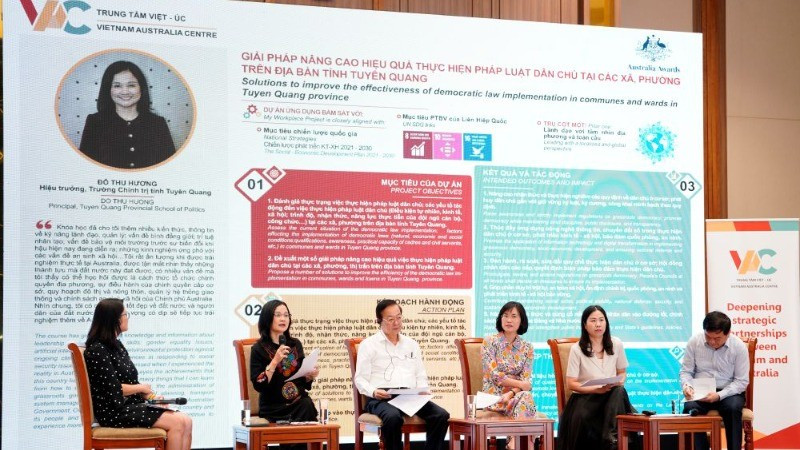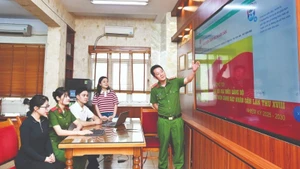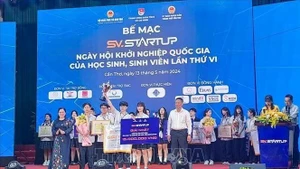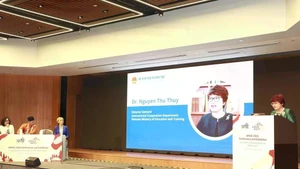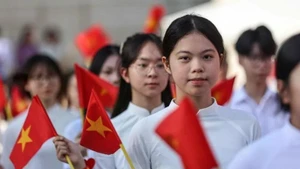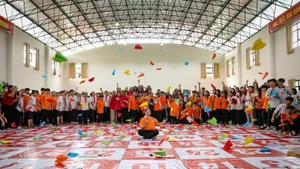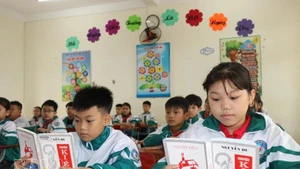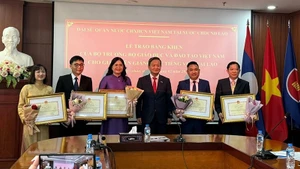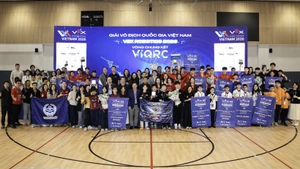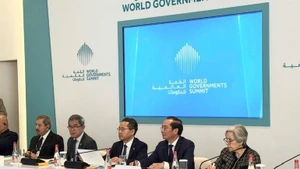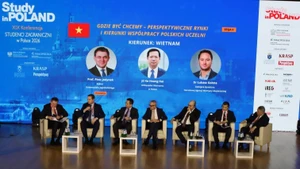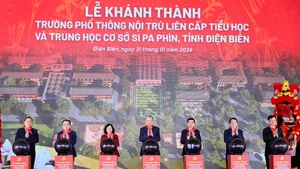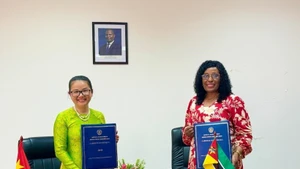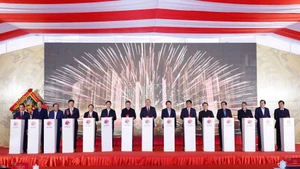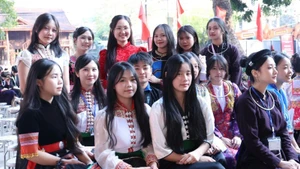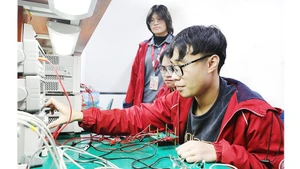Funded by the Australian Government for Viet Nam, the programme is organised by the Viet Nam-Australia Centre (VAC) in collaboration with Curtin University.
It aims to improve the capacity and skills of Viet Nam's human resources and affirms that educational cooperation and human resource development remain a key pillar of the comprehensive strategic partnership between the two nations.
The curriculum focuses on four key pillars with significant impact on leadership among the public sector including leadership with both local and global vision; sustainable growth and environmental protection; leadership in the digital age; and inclusive leadership.
These elements align with Viet Nam’s socio-economic development plan, national master planning, and the United Nations’ Sustainable Development Goals.
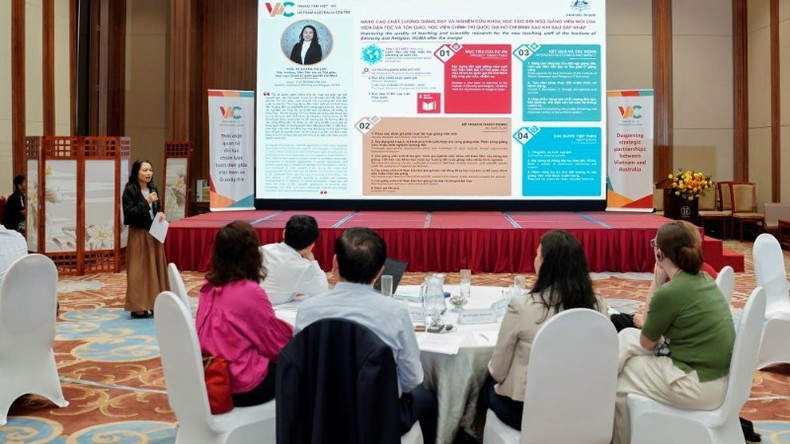 |
| Training content tailoured to Viet Nam’s human resource development priorities. |
The knowledge related “leadership in the digital era” attracted significant interest from participants, as they explore the pressing challenges and opportunities that digital technology presents to public sector leadership. This includes aspects such as remote leadership, big data management, cybersecurity, and leveraging technology to deliver better public services.
Participants also gained the ability to manage digital transformation and harness technology to drive innovation and leadership in a rapidly changing global environment.
Dr. Nguyen Dang Que, Deputy Director of the Academy of Public Administration and Governance, noted that the most valuable takeaway from the course was gaining deeper insight into practical actions for sustainable development and environmental protection, as well as future opportunities and challenges that require strategic decision-making from leaders.
Assoc. Prof. Dr. Pham Duc Kien, Deputy Director of the Academy of Politics Region III, remarked that the combination of foundational theoretical subjects with current issues, such as leadership in the digital era and sustainable development, along with practical research and site visits to economic institutions and local governments, was especially beneficial for managers.
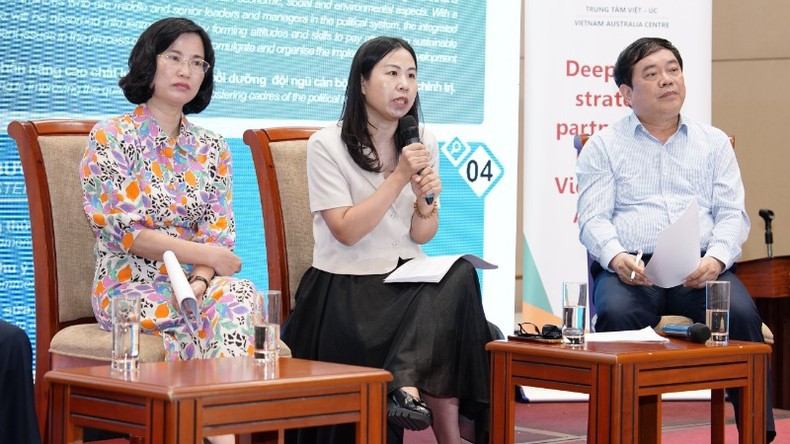 |
| Vietnamese and Australian participants share knowledge. |
Throughout the course, participants were equipped with the knowledge to balance economic development with ecological responsibility, promote renewable energy, and understand the importance of building policy frameworks and regulations for sustainable development. They also learned how to leverage regional strengths with national support to foster sustainable development at both local and national levels, promoting inclusive and equitable progress for all communities.
Through intensive training sessions and field visits in both Viet Nam and Australia, participants, including experts and senior executives from public and private sectors of both countries, shared experiences and built social and professional networks at global, national, and regional levels. This ensures that participants can connect with domestic and international peers to apply their learnings within their organisations. Therefore, the programme emphasised the importance of mutual learning and knowledge exchange between Viet Nam and Australia.
Assoc. Prof. Dr Nguyen Thi Truong Giang, Deputy Director of the Academy of Journalism and Communications, shared: “Not only did I have access to modern knowledge on governance, digital transformation, gender equality, and strategic leadership, but I also had the opportunity to engage with experts, lecturers, and senior leaders from the Australian Government and prestigious institutions. The hands-on experiences at educational institutions, businesses, and public agencies in Australia broadened my perspective and introduced me to effective models and practices that I can apply in my leadership and management roles in Viet Nam.”
Prof. XiaoTian Zhang, Deputy Vice-Chancellor Global at Curtin University, commented that through collaboration, a difference for people and the environments can be made.
As part of the course, participants developed and presented 16 practical project initiatives tailored to the programme’s core focus areas. These initiatives are applicable at both national and international levels and aim to create measurable and meaningful change in the public sector.
Australian Deputy Ambassador to Viet Nam Renee Deschamps stated that the Australia-Viet Nam partnership has never been more dynamic and comprehensive than it is today.
She expressed her belief that the experiences, insights, and connections built by the participants during this course will enrich their professional practice, strengthen their leadership capacities, and support impactful, job-based initiatives. These will further reinforce the ties between our two countries.
This is the third time the course has been held since 2022. It is funded by the Australian Government and delivered through the Viet Nam-Australia Centre in collaboration with Curtin University.
Over the three-month course, 16 leadership-level officials from central agencies — including the Government Office, the Ministry of Foreign Affairs, and the Ho Chi Minh National Academy of Politics — alongside representatives from provincial agencies and units from Ha Tinh, Kien Giang, Can Tho, Bac Ninh, Bac Kan, and Tuyen Quang, have developed and implemented applied projects across various themes aligned with Viet Nam’s practical needs.
